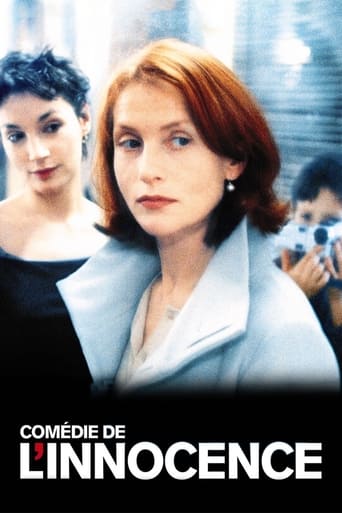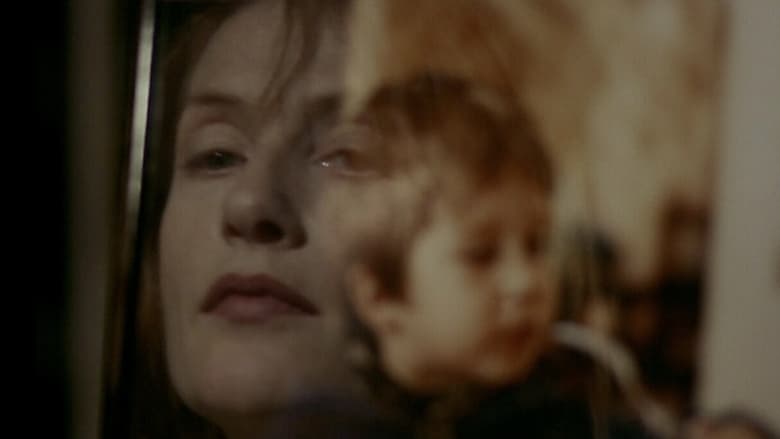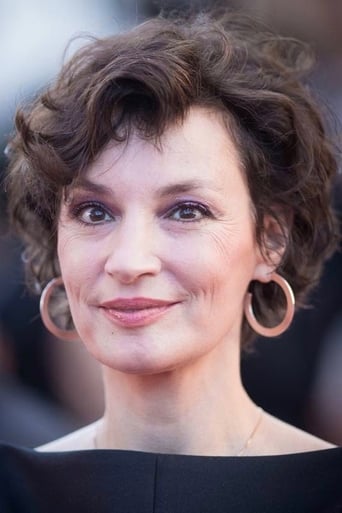

Comedy of Innocence (2000)
Today, Camille turns nine. He had sworn that on his 9th birthday he would show his parents the videos he was shooting on the side - the tail of a cat scampering away, a window, and a veiled woman's face - an intriguing picture... Later that day, Camille's mother, Ariane, meets up with her son in the park. The boy appears perturbed. He is leaning against a tree, eyes cast down. He says that now he wants to return to his "real home" and his "real mother."
Watch Trailer
Cast


Reviews
Wonderful Movie
Pretty good movie overall. First half was nothing special but it got better as it went along.
The film creates a perfect balance between action and depth of basic needs, in the midst of an infertile atmosphere.
All of these films share one commonality, that being a kind of emotional center that humanizes a cast of monsters.
This is extraordinary. It's an easy movie to either like or dislike, because after watching it once, you might realize, or not realize that from almost the first scene, as the characters fade back and forth from real to incredible, you and one of the characters are being fooled into believing that something is real that doesn't actually exist. The two 'mothers' are one-of-a-kind beauties, and the child, Camille is played by a fabulous once-in-a-decade child actor. If you pay attention to the closeup of the painting at the end, you will become fully aware how our cine-reality has been compromised during the time we were watching. I was moved to order the book, now a set retitled, "Separations: Two Novels of Mothers and Children".
I'm beginning a serious affair with Ruiz and what an adventure it is turning into!I originally was directed to Ruiz because of my public esteem for Greenaway; several readers suggested Ruiz. Ruiz clearly comes from the Latin tradition of floating narrative, where layers and magical realities penetrate each other. Where sex and related emotions weave with intellectual perspectives. Where floating without anchors beyond the anchor of lightness itself is the very idea of life.Medem is the one I appreciate the most in this Latin world, though there are many others and I suppose the future of film now the next episode at least is in their hands. Its in the nature of this floating for some artists to fold in layers of extreme self-reference, including notions of what constitutes art, the instant artifact, and in other directions, essays on illusive realities and the charms or multilayered love.Greenaway is something a bit different. His floating is usually bipolar, between the Latin layers on one hand, soft and ephemeral and impulsive and codified frameworks on the other. Frameworks like ordering systems and symmetric containers. Cosmological and human machines for managing reality. The written word, itself dual. For Greenaway, it has to be an artifact first for him to escape the nature of artifacts.Ruiz superficially appears similar, but in fact he inhabits a whole different world. Where Greenaway registers against geometric cosmologies, Ruiz simply works within the form of French cinema. It makes him less because French cinema how to say this gently is bankrupt. Yet, like modern religions of the book, it refers to times and frames of vitality.Yet, it is a haunting notion, to bring this layered Latin floating of realities to a form that supposes that there is only one layer in life and that it is light, somewhat capricious and animated by the female urge.What we have in this film is a space where every character is creating multiple realities: each person is in control and mad at the same time. In control, because he or she creates the realities we see. Mad because they cannot control them or separate them. each of these reflects into the artifact of the film.We have the boy, who is an obsessive filmmaker, already by his ninth birthday his life and film have merged. He splits into three persons: the one his mother bore, a second one another woman had and lost and a third, Alexander, seen as imaginary by his mother.We have the mother (a theater designer and painter) from whose perspective she splits into two women, both vying for the boy who died two years ago. One reality of this woman is that she is simply floating, French-wise, though intimate peelings that reveal ever more soft a soul. Another is that she is the other woman, a violinist inmate in a madhouse where she imagines her doctor to be her brother. She sees the madhouse as the family home, the other inmates as statues. There's Serge, who the mother sees as her brother and in her other self as the psychiatrist of the madhouse. He is the fellow who sees. He blends with the boy, their toy-films are shared. It is because of Serge's lunchtime screws with the housekeeper/governess that the boy is unattended and drowns.This is the French core, sex generated folded realities. In the DVD extras Ruiz says he had to do it this way because it is "against the law" to have ghosts in French films. That young sexy girl is the fulcrum of the thing, her torso locked in throwing the dice and always getting the same number, what she calls "inverted probabilities."It isn't lifealtering stuff. But it is fine, Very fine, the house as the character.Ted's Evaluation -- 3 of 3: Worth watching.
... and while you're about it save the plot. I am always going to see anything Isabelle Huppert does. She is far and away the finest French actress currently working and few international actresses can touch her but she does have a wilful side and in the last few years seems drawn to anything from off-the-wall (as here) to sleaze (Deux, The Piano Teacher) so fans don't have it easy and given her current track record we can only assume 8 Femmes was an aberration. This is a case of style over content, everything hinges on the unrealistic premise of Huppert saying 'okay' when she should have said 'get a life' as ninety nine mothers out of a hundred WOULD do in similar circumstances. It's not really enough to pepper the cast with certifiable nannys and neighbors because that only makes the SEMI intelligent viewer shout WHY. Why does Huppert continue to employ a nanny/au pair who declines to eat as one of the family and is constantly throwing dice which always turn up 7 and neglecting the nine year old when they are out together. Why, for that matter, does Huppert's brother, a psychiatrist, no less, become disturbed if anyone touches his toys (Huppert has inherited the family home, where she and her brother grew up, from her parents and the brother's toys are still stored there), given that Huppert has, by definition, lived in Paris all her life and that Paris is a very compact city, why is she TOTALLY unfamiliar with other arrondisiments other than the one in which she lives, why, when Huppert, a total stranger, calls on Jeanne Balibar only to find her out, does Balibar's neighbor, who has a key, cheerfully let this stranger into her neighbor's apartment (perhaps 'cheerfully' is the wrong word, given the neighbor's penchant for gloomy predictions. I could go on but you get the picture. As long as we're asking pertinent questions, why did Denis Podalydes, an established and respected actor, agree to what is little more than a cameo, and why, for that matter, even ask a well-known actor when an unknown would do. On the credit side Huppert is tremendous and Balibar not far behind but it's Class Acting that feels like an Acting Class and not a movie.
Ariane (Isabelle Huppert) mother of young Camille has a frustrating problem on her hands. Her son says that she is not his real mother and that his real mother lives in another part of town. Also he insists that Ariane take him to her. What has happened to parental control? Mother and son seek her out. Her name is Isabella ( Jean Balibar) and she had a son Paul the same age as Camille but he was lost in a drowning accident. From this moment on Isabella seems to take over insisting Camille is Paul and Camille insisting that she is his mother.It's very unlikely to happen in real life and the whole set-up is rather laughable. Things get worse when Isabella moves into Ariane's home to be near her so-called Paul. While there she tries to seduce Georges. "Why are you doing this?" he asks".....I need a father for my son" Because Isabella is so difficult to get rid of, family and friends suspect she could be a witch. Need I go on?The acting is excellent throughout. Huppert so gracious and serene, and Balibar well cast as the post-traumatic mother with her ever too ready smile. The dialogue is strange. Many sentences are unfinished. Many idea are not resolved. There is a vague feeling of inactivity and helplessness. The au pair is strange and loves to play the dice. The whole house is littered with busts of men and women so weird-looking in the shadowy light of evening. Great for atmosphere but surely difficult to live with. No wonder the household was a trifle mad.One scene tends to send shivers down one's back. It's when Isabella decides to re-enact the drowning of her son by dunking Camille off the side of the barge. She is completely crackers...quite pathetic really.Camille's favourite plaything is a video camera which he likes to poke into everybody's face. It is said the camera does not lie and in this case what is captured on video happens to resolve the situation.




